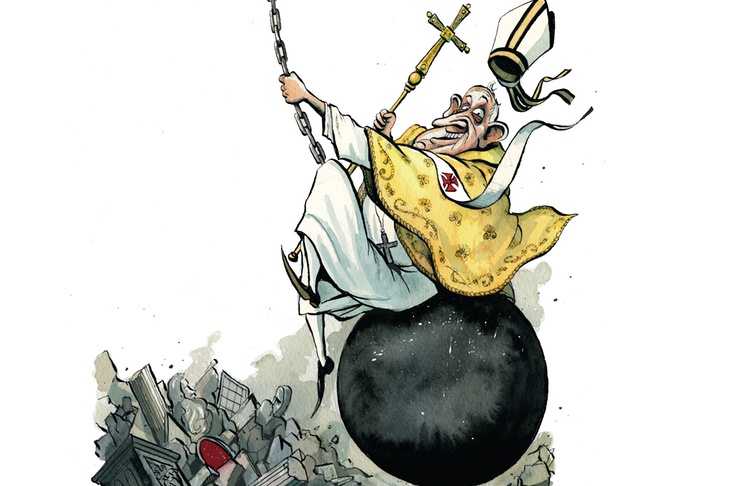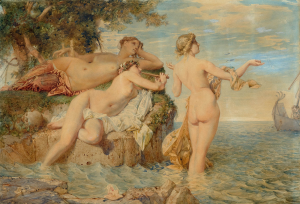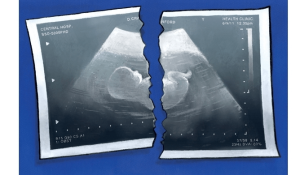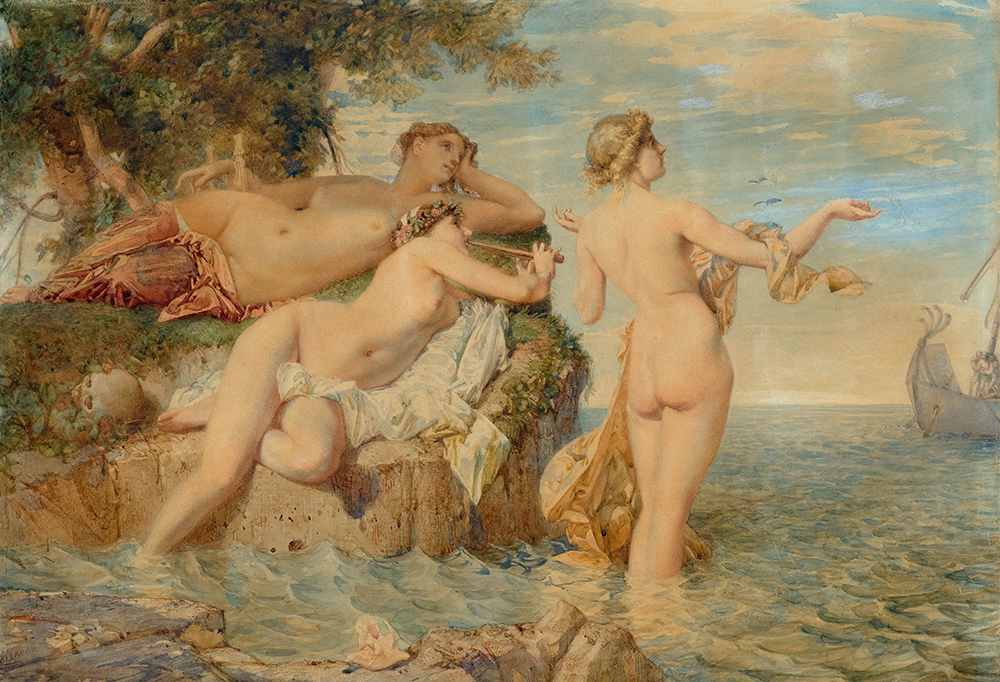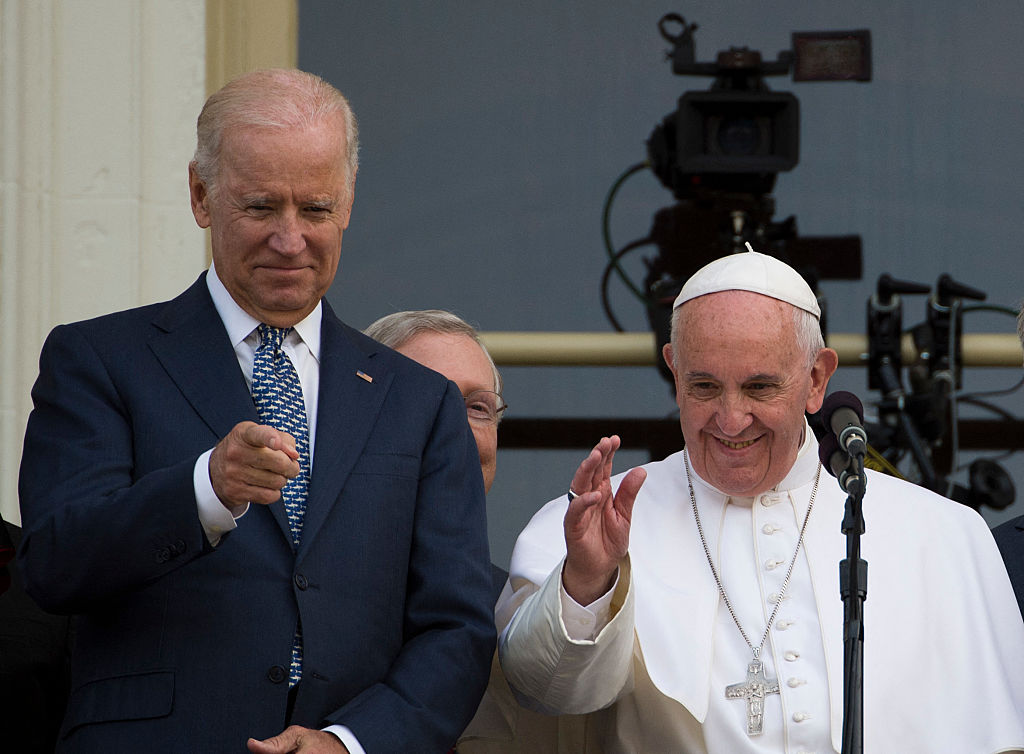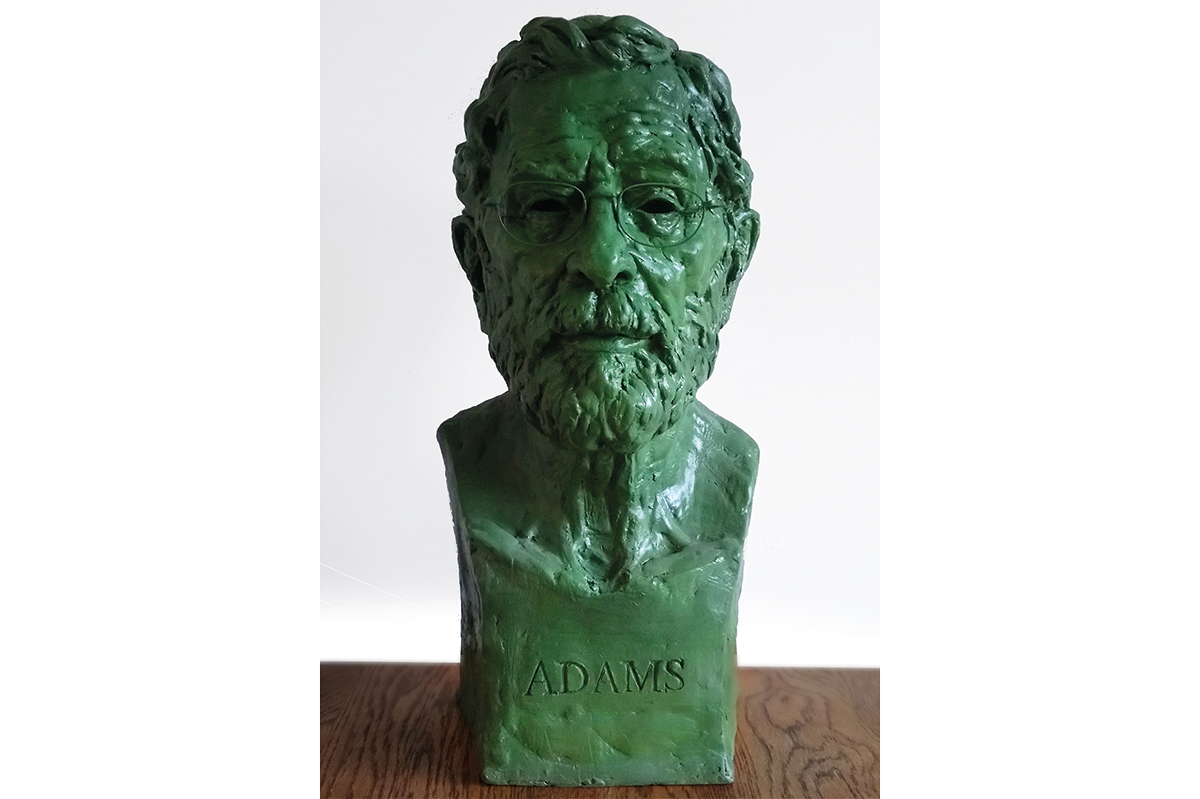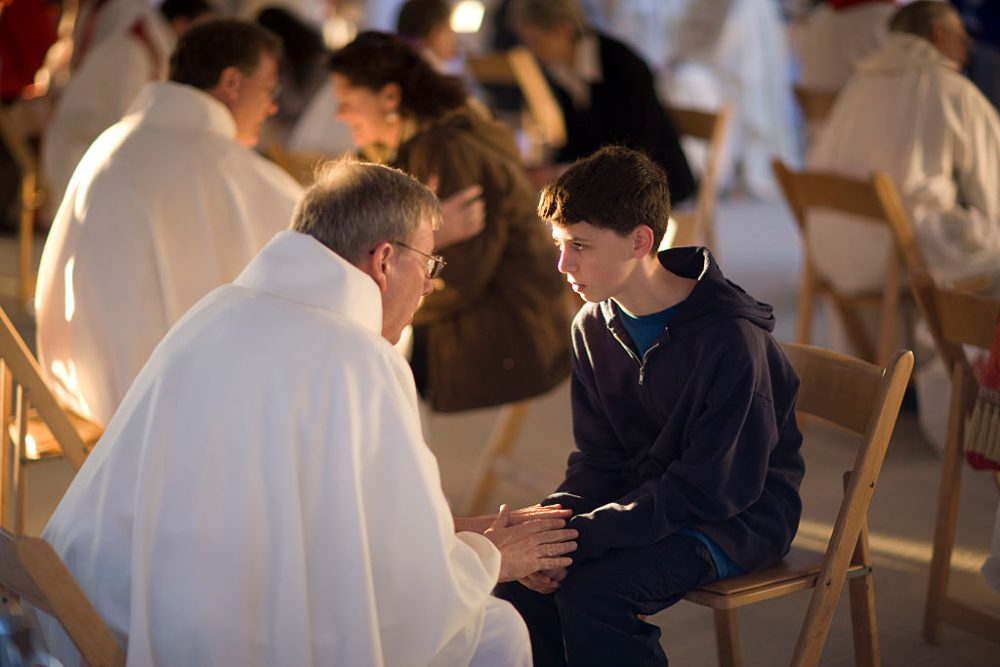Just before Ireland voted overwhelmingly to end the country’s constitutional ban on abortion, Catholics in the fishing village of Clogherhead could be seen storming out of Sunday mass halfway through the service. Why? Their parish priest had come on too strong. He had not only ordered them how to vote but also supplied grisly details of an abortion procedure.
Presumably some of them voted to repeal the eighth amendment. The ‘Yes’ campaign couldn’t have won its two-thirds majority without the support of practising Catholics. Very few of these, we can assume, were militantly pro-choice. Instead, they were reassured by promises that any future law would be limited in its impact — and determined to ignore a Catholic hierarchy contaminated by child abuse.
The only Catholic bishop who could have changed their minds was Pope Francis, whose 70 per cent approval rating in Ireland puts him ahead of any other world leader. But he said nothing, before or after the referendum. This isn’t surprising. Although Francis loves to make headlines, any deliberately controversial things he says — as opposed to accidental faux pas — tend to challenge social conservatism, and especially the socially conservative teachings of his own church.
Last month, for example, he reportedly told Juan Carlos Cruz, a gay Chilean abuse victim: ‘Juan Carlos, that you are gay does not matter. God made you like this and loves you like this and I don’t care. The Pope loves you like this. You have to be happy with who you are.’
It’s no good saying, as some conservative Catholics have, that we have only Mr Cruz’s word for this. The Vatican did nothing to correct or finesse these comments. This is the Pope’s modus operandi: he leaves the reporting of his views to third parties and then sits back and enjoys the storm. Provided, of course, that it is the right sort of storm: one that batters the faith of Catholics who are committed to upholding the church’s most unpopular doctrines — on the indissolubility of marriage, the prohibition of all extramarital sexual acts and the reality of Hell. Francis doesn’t want to destroy their faith: the point of the battering is to remodel their beliefs in order to achieve a neater fit with the western secular consensus.
Only now is this becoming clear. Francis himself is not a conventionally secular churchman. Few Jesuits are, even when, as in his case, they move sharply to the left in old age. However fashionable the causes they adopt, Jesuits bring with them the whiff of the spiritual battlefield. Even their diplomacy is the pursuit of warfare by other means.
Jesuits have always known how to take the temperature of society, and Francis is no exception. He knows that we live in an era of identity politics. That doesn’t mean that he subscribes to all its fads. He’s no keener on ‘abortion rights’ or hanging out with transgender people than your average 81-year-old Argentinian Catholic. But, as Henry Sire points out in his devastating short biography of him, The Dictator Pope, he belongs to a generation of Catholics shaped by Juan Perón, whose malleable ideology reflected the essential cruelty of Argentine society. Perón could switch from socialist to fascist to capitalist depending on the day of the week. Bergoglio has revolved more slowly — from tormentor of progressive clergy in the early days of John Paul II to discreet champion of LGBT rights in the later days of his own pontificate.
Admittedly, the most famous thing Francis has ever said — ‘Who am I to judge?’, in response to a question about homosexual Catholics — came within months of his taking office. It wasn’t clear what he meant, and in a later interview he presented it as no more than a merciful gloss on the rules: he doesn’t judge if a gay Catholic is trying to live chastely.
Since then, however, Francis appears to have shifted his ground. His line on homosexuality has grown closer to his position on allowing divorced and remarried Catholics to receive Holy Communion. If we read between the lines — the only way to understand this pope — we find the same de-petrification of teachings once set in stone. If, on examining your conscience, you believe that your monogamous but sexually active straight or gay partnership is consonant with your life as a Catholic, then you must make your own decision about receiving the sacraments.
This is Francis’s understanding of Christian compassion. It isn’t identical to that of the current catechism of the Catholic Church; nor is it dictated by secularism — which, after all, embraces gay marriage and abortion, both opposed by Francis. But it does reveal his ambition to reconcile the two. In the case of abortion, the Pope has concluded that Catholics can best achieve this by not banging on about ‘mass slaughter’. He may be right. Then again, secularists may decide that silence is consent.
Either way, commentators who depict Francis only as a reformer doing battle with Catholic reactionaries, or a near–heretic undermining the deposit of faith, are in danger of missing the full implications of his pontificate. The Irish vote for abortion, although influenced by factors specific to Ireland, was fundamentally just another instance of the rejection of social conservatism throughout the developed world.
There was never going to be a Trump or Brexit-style upset, because none of the recent populist surprises sprung on liberal elites have been rooted in moral values. (They may have invoked them, but that’s not the same thing.)
The process of secularisation can’t be reduced to an assault on faith by atheists. Just as important, if not more so, is the accommodation to secular norms by religious organisations and their members — ‘believers’ who, confronted by the intense moral dilemmas thrown up by the modern world, quietly choose to believe something different.
The Catholic Church has, until now, had more success in preserving awkward doctrines than any other western religious body. The problem was that everything depended on its pope. Francis, like a true Jesuit, carries himself with the self-assurance of a commander-in-chief. But nothing can disguise the fact that he’s lowering the papal flag and waving a white one.
Now listen to Damian Thompson talk to Father Alexander Lucie-Smith. Is the Catholic Church embracing homosexuality?



